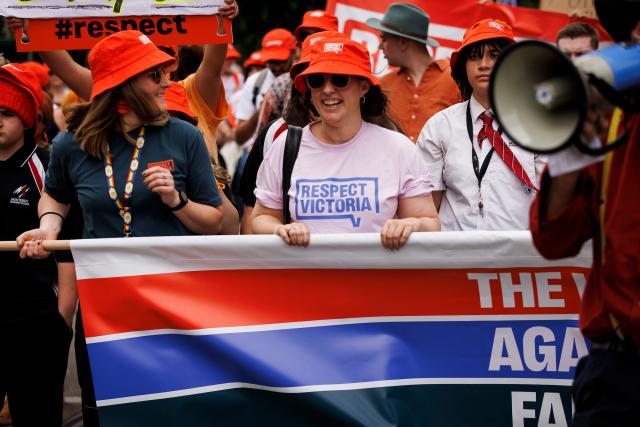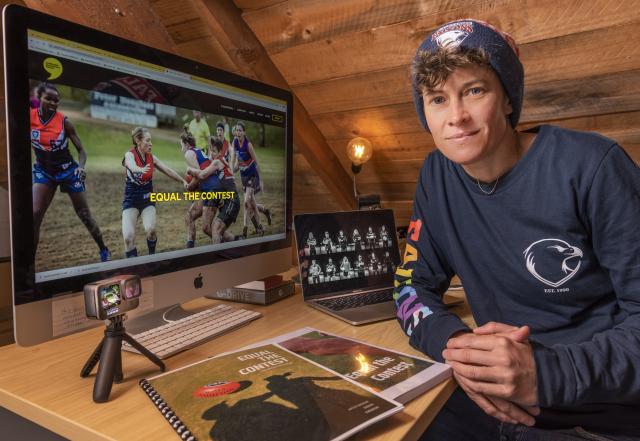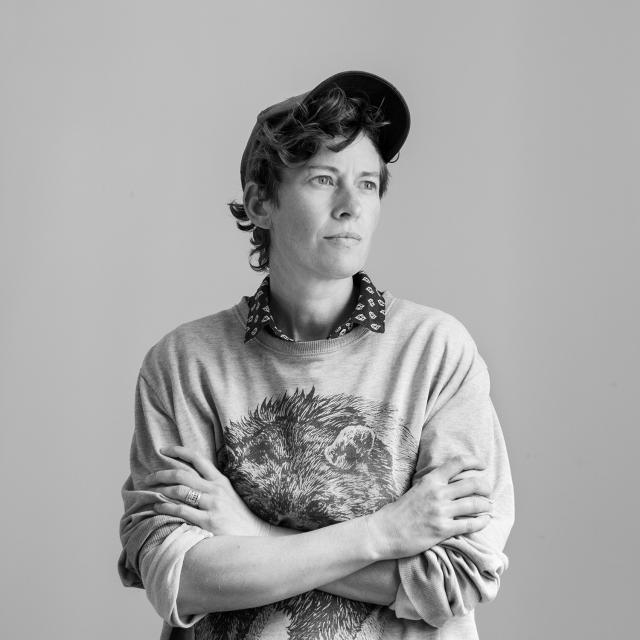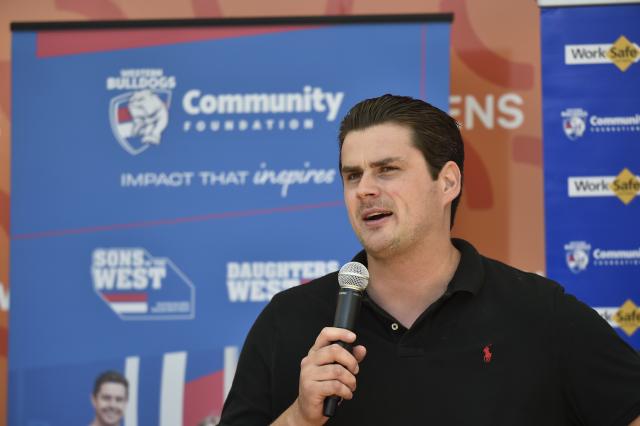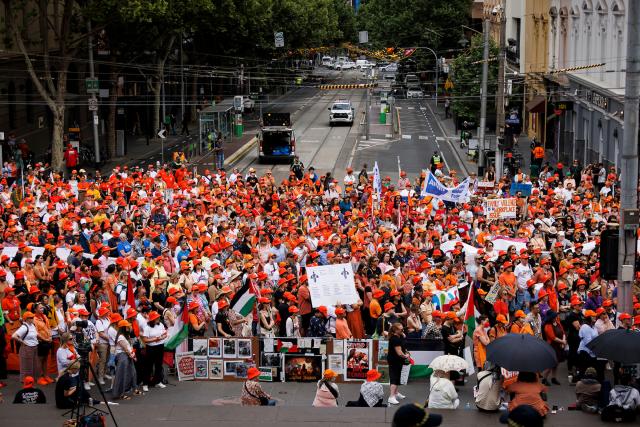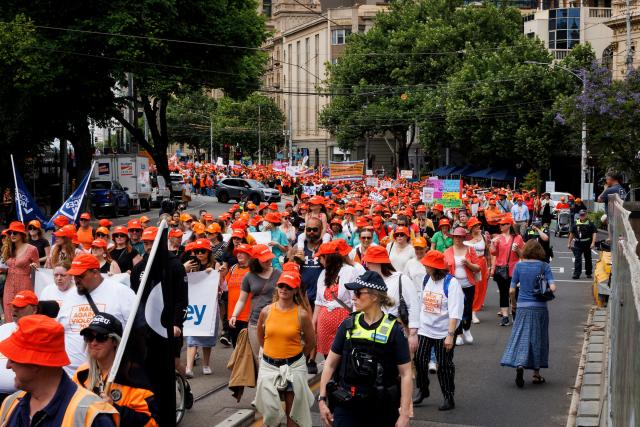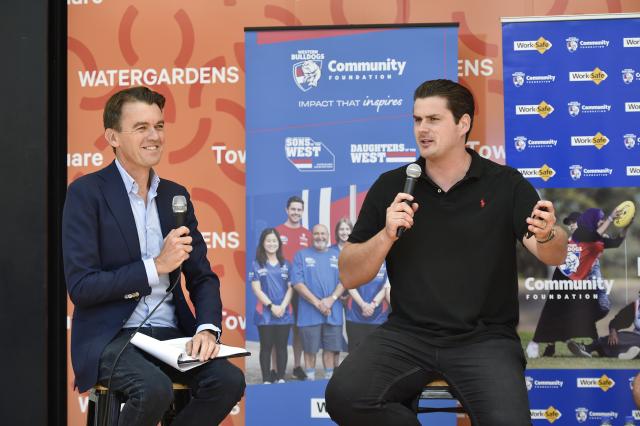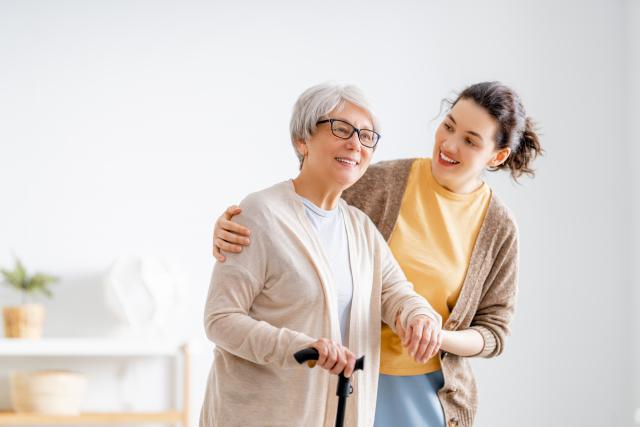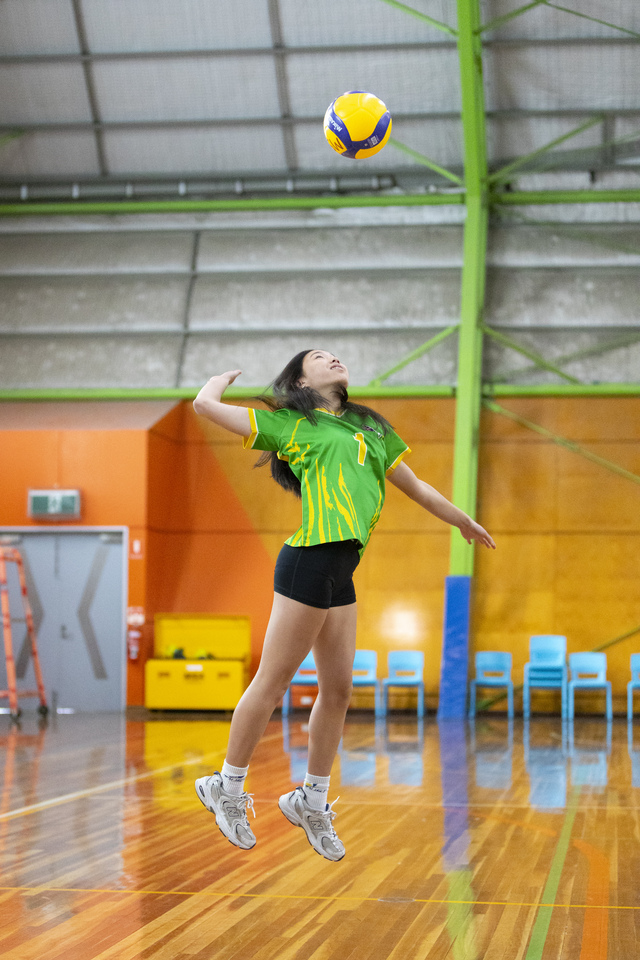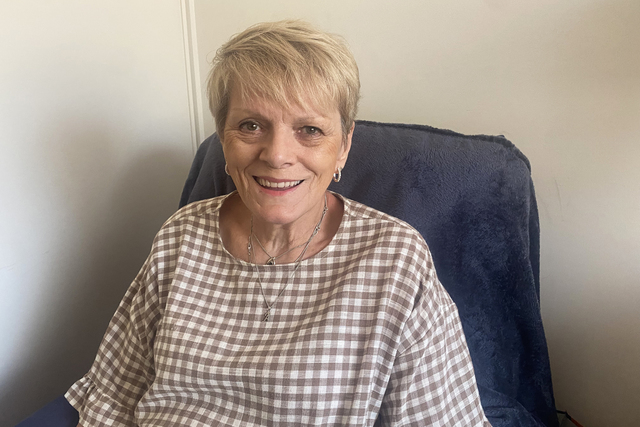As this year’s 16 Days of Activism wraps up, Zoe Moffatt dives into the world of footy and the work being done in the outer north-west to improve gender equality and inclusivity.
On Friday, November 24, thousands of Victorians swarmed the steps of parliament house.
Beneath the sunshine, a sea of orange swelled for the annual Walk Against Family Violence, the kick start to the 16 Days of Activism campaign.
The marchers were united by disturbing Australian Bureau of Statistics (ABS) data that revealed more than one in four Australian women experienced partner violence or abuse.
The statistics released on November 22, found that one in six women experienced partner violence and partner economic abuse, while almost one in four experienced partner emotional abuse.
For filmmaker and Castlemaine footy player Mitch Nivalis, these figures aren’t a surprise.
“It’s far more widespread than I think most people realise,” Mitch said.
“I feel like potentially [those] statistics are underreported, because you know, those are the stats that have been reported and I think there’s far more challenging and horrible things going on behind closed doors.”
Data from Australia’s National Research Organisation for Women’s Safety found that most Australians do not believe violence against women is a problem in their communities.
The analysis found that while 91 per cent of Australians recognise violence against women as an issue at a national level, only 47 per cent admit it could be a problem in their own suburb or town.
These telling statistics highlight the need for further localised education, and for Mitch, this is the place where local footy clubs can step up and lead on inclusion and activism.
“Sporting clubs are connected in so many different ways to a large part of our community,” Mitch said.
“Most people will have kids that will be involved in sporting clubs, adults are involved in sporting clubs, and then all those networks, friends and family that those people are connected to.
“So if we’re having these kinds of conversations within sporting clubs, and we’re creating cultures in sporting clubs that are inclusive and equitable for everyone, then that automatically starts to seep out into the border community and change happens quicker.”
Throughout the 16 Days of Activism, Mitch’s short film about the Mount Alexander Falcons was streamed at locations in Melbourne’s outer north-west.
The film, Equal the Contest, follows the formation in 2021 of the Castlemaine based football club for women and gender diverse people and their fight for inclusion in the AFL.
Despite fulfilling all the necessary conditions to form a new club, the Falcons initially had their application rejected by AFL Central Victoria.
The club members then embarked on a campaign to gather support from the community to overturn the decision, challenging age-old sporting traditions and joining the wider movement for gender equality.
Speaking about gender equality in sport and rates of violence against women and children, Mitch said while things are changing, they need to happen faster.
“Sometimes I think we’re moving way too slow and sometimes I feel like we’ve got such momentum that things are changing quickly,“ they said.
“When I was a kid there wasn’t even such a thing of girls playing soccer, and now we’ve just had the phenomenon of the Women’s World Cup.
“That’s my lifetime, things are changing, but the rates of violence against women and children are still at epic proportions. In that sense, we’ve got so much work to do still.”
For growth areas in Melbourne’s outer north-west, like Melton and Wyndham, high levels of family violence is an ongoing issue.
In 2020, the Melton LGA had the highest rate of family violence per 10,000 people in metropolitan Melbourne, and in 2020 Wyndham ranked fourth highest in Victoria for reported incidents of family violence.
Family violence support service GenWest is pushing change with a series of community footy club workshops on how clubs can be inclusive, the importance of gender equality and its link to preventing gender-based violence.
Former Western Bulldogs premiership player Tom Boyd will be speaking at the workshops as part of the Champions of the West program.
Tom said community sporting clubs are in many ways a cornerstone of communities.
“With that, they are uniquely placed to bring forth topics to focus on that will improve our society,” he said.
“At the end of the day, we want our clubs to be places that can unlock the potential of as many people as possible, and help them thrive.
“These sessions are a great opportunity to bring people together to talk on things that are of grave importance, and bring it to the forefront of people’s minds leading into a great year of football.”
The program engages local community football club leaders and players to increase understanding of the links between gender inequality and gender-based violence.
The sessions will be delivered early next year, and clubs in the Western Region Football League and Sports Central can sign up for a free session during 16 Days of Activism. Interested clubs should email GenWest for more information.
Respect Victoria chair Dr Kate Fitz-Gibbon said that while family violence and violence against women is a national crisis, it is preventable.
“We are calling on all Australians to take action to prevent violence and to learn what drives it,” Dr Fitz-Gibbon said.
“Everyone has a role to play if we are ever going to see safe relationships, safe workplaces and a safe community for all women.
“Violence is happening in every town and suburb in the country, and we all have an opportunity to be part of the solution. We’re better than this, and we must all strive for a safer future for women and girls.”
Looking towards the future, Mitch said they are hopeful things will continue to change, but people need to continue pushing these important conversations.
“There’s so much happening and it’s a bit of a numbers game. We need more women and gender diverse people in key roles in organisations.
“We need more learning and education happening particularly for young boys in school. There’s so many conversations that we need to keep pushing forward and progressing in order to make that change.
“But I definitely feel hopeful, I think we’re moving in the right direction.”
Details: comms@genwest.org.au

